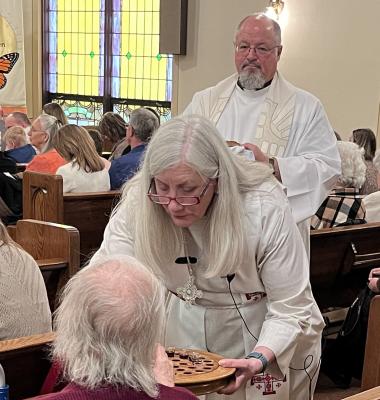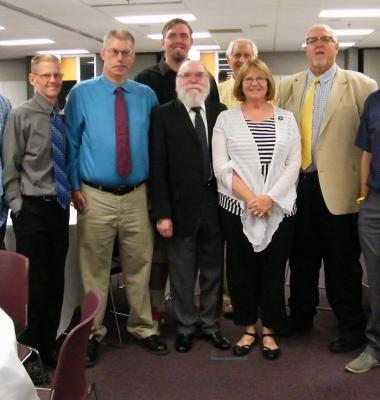Grassley lauds Branstad, talks ambassadors
EDITOR’S NOTE: The following “Q&A” was placed Friday afternoon on the website run by the office of U.S. Sen. Charles Grassley, R-Iowa.Q: Do you expect Governor Branstad to be confirmed as the next U.S. ambassador to China?A: Yes. Governor Branstad had a very good confirmation hearing before the Senate Foreign Relations Committee. I was proud to introduce him to members of the committee and share my support for his nomination.Governor Branstad not only has forged a 30-year strategic friendship with the Chinese president; he also has served as an ambassador for Iowa for more than 22 years as our state’s chief executive, promoting our state’s economy and opening markets for our farm commodities, financial services and manufacturing to the world marketplace. He will bring Midwestern humility and level-headed leadership to this important and prestigious position for the United States and the American people.I have no doubt he will help build lasting connections with the Chinese people and stand strong for our American values, such as freedom of the press and religious liberty, and work to strengthen peace, stability and prosperity between our two nations. I expect the full Senate to approve Governor Branstad with strong bipartisan support. He will serve as the 12th U.S. Ambassador to the People’s Republic of China since diplomatic ties were normalized in 1979. A bit of historical trivia reveals that Governor Branstad will not be the first diplomat from Iowa to serve as an envoy between the United States and China. President William McKinley appointed former Iowa Congressman Edwin Conger to serve as ministerial ambassador to the Great Qing Empire in 1898.Q: What role does Congress have in foreign affairs?A: The Constitution provides limited, yet significant authority to Congress to influence foreign affairs. First, Congress has exclusive power of the purse to appropriate money that federal agencies use to implement U.S. foreign policy.For example, Congress determines the budget for the Pentagon and Department of State. The agencies may spend the money only as the law requires to execute the nation’s defense and diplomacy.Alongside the rest of the executive branch — from counter-intelligence agencies to the USDA to the Departments of Justice, Commerce and Treasury – managing foreign affairs encompasses a broad range of complex issues, from nuclear proliferation, to humanitarian and public health crises, international trade, cyber security, currency, food security, intellectual property, human rights, immigration, international narcotics control, terrorism and human trafficking.The U.S. Senate bears constitutional authority to ratify treaties and to confirm ambassadors and other high-ranking diplomatic appointments to serve in the State Department. More than two centuries since opening its doors, the State Department today spans the globe with nearly 200 embassies, consulates and diplomatic missions working to serve America’s interests in the 21st century.As with any federal agency, I take seriously my oversight authority, particularly to hold the bureaucracy accountable for mismanagement or misconduct in its ranks. That’s also why I work to strengthen protections for whistleblowers who risk their careers and livelihoods to report wrongdoing.Q: What are some of the ways your office interacts with the State Department and foreign embassies?A: I work to make sure the federal government works for the American people and provides timely, effective services to the public.When it comes to the State Department, that may include unlocking bureaucratic delays, expediting stalled paperwork and helping cut red tape for Iowans living, working, traveling or studying abroad. My office tracks hundreds of constituent cases per year and Iowans benefit from seasoned constituent specialists on my staff who navigate bureaucratic hiccups, nudge federal agencies and leave no stone unturned when Iowans find themselves in a pinch requiring services from the government. My liaison work with the State Department may include cases of lost or stolen passports or helping Iowans who require urgent assistance in situations involving a death, a natural disaster or civil uprising in a foreign country. In other cases, my office has helped Iowa families who are struggling to cut through government red tape with international adoptions to welcome their children home. Maintaining diplomatic ties around the world not only helps implement U.S. foreign policy, it also benefits Americans traveling abroad for work or leisure. Good diplomacy is good for Americans.What’s more, it helps build economic ties that create jobs and strengthen prosperity for America and our allies. After the economic farm crisis 30 years ago, I launched a biennial Ambassadors Tour to showcase Iowa to potential trade partners.For more than two decades, I partnered with Iowa economic development leaders, businesses, educational institutions and family farmers to roll out Iowa’s welcome mat. We invited the foreign diplomatic corps in Washington, D.C., representing scores of nations from around the world to come to Iowa for one week, ending the tour each year at the Iowa State Fair.Facilitating these trade tours provided a good way to foster cultural understanding and economic opportunities between Iowans and our global neighbors.














